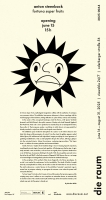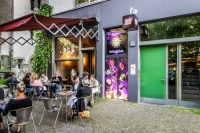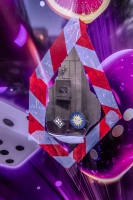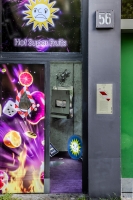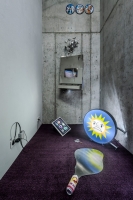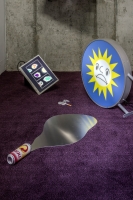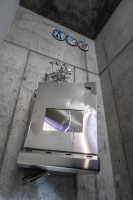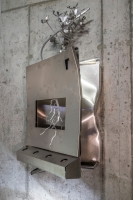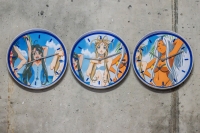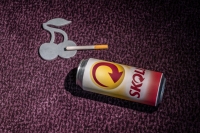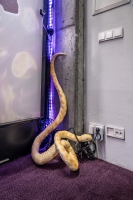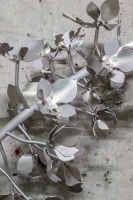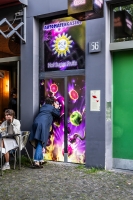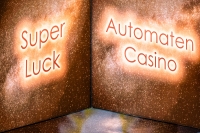2025 064 anton steenbock: fortuna super fruits
june 16 — august 31, 2025
viewable 24/7
opening on sunday, june 15, 15 h
In Fortuna Super Fruits, mythological imagination collides with the aesthetics of contemporary consumer culture. The exhibition interweaves references to Norse cosmology with the visual language of slot machines, inviting reflection on cycles of fate, control, and circularity.
At the center of this conceptual landscape stand the Norns — Urðr (past), Verðandi (present), and Skuld (future) — the mythic weavers of destiny who dwell beneath Yggdrasil, the World Tree. Their role is not to predict but to inscribe: they do not anticipate the future, they author it. Their presence evokes a worldview in which time is not open-ended but already encoded, a script from which even the gods cannot deviate.
The exhibition space evokes the atmosphere of a casino — a site where chance is simulated, but always within parameters of control. From the street, the gallery appears sealed behind glossy foil emblazoned with algorithmic images parodying the visual grammar of gambling establishments. Only a small peephole disrupts this surface, offering a glimpse into the saturated interior. Above the entrance, a glowing sign proclaims “Hot Super Fruits” — a collision of ancient symbolism and commercial kitsch.
Inside, fruit icons — staples of slot machine design — recur in looping, hypnotic sequences, visualizing the circular logic of reward and repetition. A flickering neon Merkur sign — its grin eerily inverted — rests on the floor, as if torn from its original place of promise. Beside it lies a can of Skol beer, its presence alluding to the myth of Sól, the sun goddess pursued across the sky by the wolf Sköll. In the final moments of Ragnarök, Sköll devours the sun — an image of consumed light and extinguished cycles that haunts this artificial landscape.
At the periphery of this synthetic Eden looms Ragnarök — the Norse apocalypse. Its arrival is not marked by randomness, but by inevitability. The death of Baldur, brought about by a manipulated act of fate, sets in motion a chain of events that no one can reverse. The myth underscores a central tension in the exhibition: humanity’s persistent urge to master fate, to postpone calamity, to reprogram the outcome — even when the system itself is beyond alteration.
Fortuna Super Fruits asks what it means to live within systems that promise agency while scripting every move. It reflects on our compulsion to rationalize chance, to automate luck, to simulate control. Yet as both ancient myth and the logic of the slot machine remind us, the wheels may spin, but the game is already set.
By Noushin Afzali
The exhibtion closed with the special event → 2025 SE15 – Super Luck Dinner

